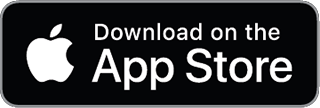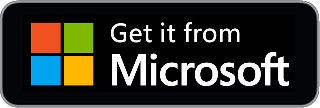Multi-Platform RSS Readers: Desktop vs. Web vs. Mobile
Introduction
In the age of information overload, Really Simple Syndication (RSS) readers serve as an indispensable tool for aggregating and organizing content from multiple sources. While the fundamental purpose remains the same—to streamline content consumption—the platforms on which these readers operate have diversified. This article will delve into the pros and cons of using RSS readers on different platforms: desktop, web, and mobile.
Desktop RSS Readers
Advantages
Offline Access
Desktop RSS readers allow you to download content for offline reading, providing an uninterrupted experience even when you're not connected to the internet.
Rich Features
Many desktop readers come packed with features like advanced search options, tagging, and more, which are generally more robust compared to web and mobile counterparts.
Better Performance
Desktop applications can often handle large numbers of feeds more smoothly, thanks to the greater processing power of most computers.
Disadvantages
Limited Mobility
You can only access your feed from the machine where the software is installed, making it less convenient for on-the-go usage.
Software Updates
Desktop applications may require manual updates, unlike web and mobile apps that usually update automatically.
Popular Options
- Feed Viewer
- FeedDemon
- RSSOwl
- QuiteRSS
Web-Based RSS Readers
Advantages
Accessibility
Web-based readers can be accessed from any device with an internet connection, offering a level of convenience desktop readers can't match.
No Installation Required
Being browser-based, these readers don’t require any installation, freeing up system resources.
Real-Time Updates
These services are generally updated in real-time, ensuring you always have the latest features and security patches.
Disadvantages
Internet Dependency
The biggest drawback is the reliance on an internet connection for content access.
Fewer Features
Web-based RSS readers may offer fewer features compared to their desktop counterparts, especially in areas like customization.
Popular Options
- Feedly
- Inoreader
- The Old Reader
Mobile RSS Readers
Advantages
Portability
The most significant advantage is the ability to access your feeds anytime, anywhere right from your pocket.
Push Notifications
Many mobile RSS apps offer push notifications for new content, making it easier to stay updated.
Simplified User Interface
Mobile apps often focus on simplicity and ease of use, ideal for quick catch-ups on your feed.
Disadvantages
Limited Features
Feature sets in mobile apps are often more limited due to screen size and system resource constraints.
Battery Drain
Constant updates and push notifications can lead to faster battery depletion.
Popular Options
- Feed Viewer
Multi-Platform Solutions
Some RSS readers offer multi-platform solutions that sync across desktop, web, and mobile, providing a seamless experience. Feed Viewer, for example, not only works across these platforms but also includes specialized features like a live tile on Windows or a gadget on iOS, making it versatile and feature-rich.
Conclusion
The platform you choose for your RSS reader largely depends on your specific needs and how you consume content. Desktop readers are robust but lack the flexibility of web and mobile platforms. Web-based options offer convenience and accessibility but may sacrifice some features. Mobile RSS readers excel in portability but could be feature-limited and battery-intensive. Multi-platform solutions like Feed Viewer aim to combine the best of all worlds, offering a comprehensive and seamless content consumption experience.

